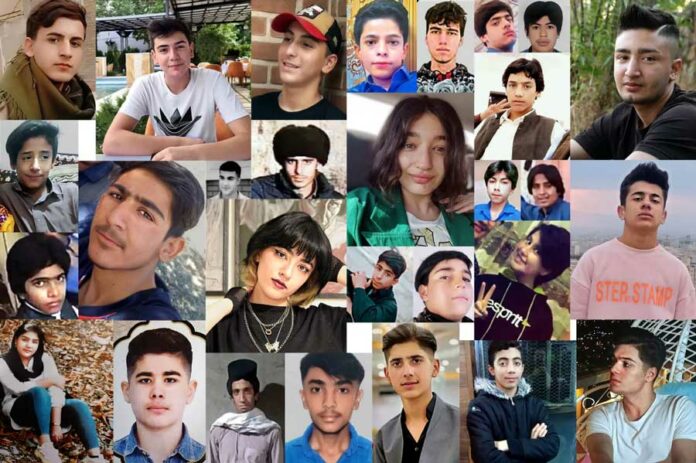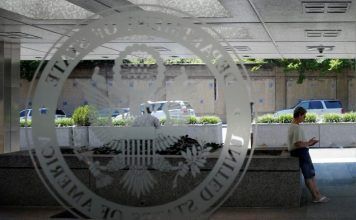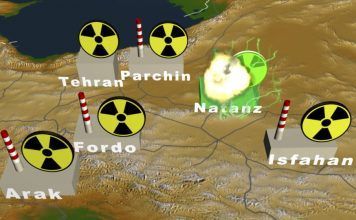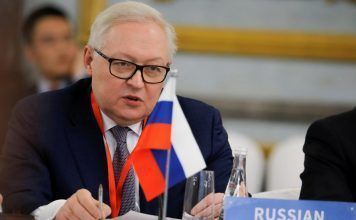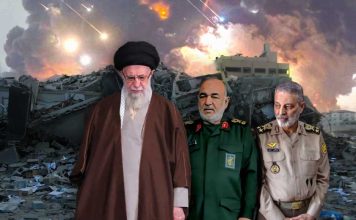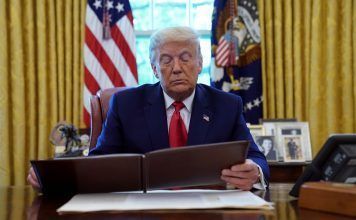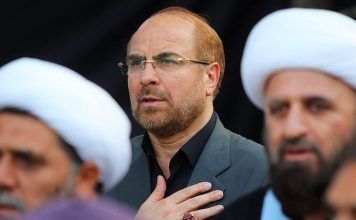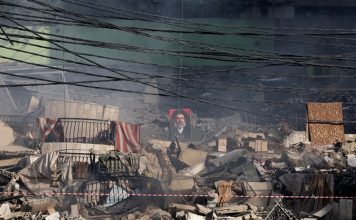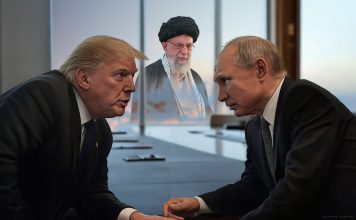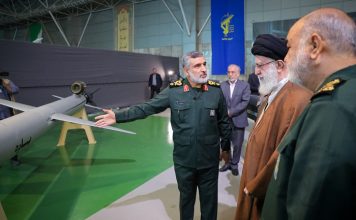The Islamic Republic of Iran’s representative to the United Nations Human Rights Council, Hamid Ahmadi, denounced criticisms of Iran’s human rights record by Germany in a Feb. 29 speech during the council’s 55th session at the UN’s headquarters in Geneva. The session, on the state of human rights around the world, began on Feb. 26 and closes on April 5.
Germany’s Foreign Minister Annalena Baerbock accused the Islamic Republic of “systematic discrimination against women and girls” in a Feb. 26 statement.
Responding to the accusation, Ahmadi condemned Germany’s support for Israel during the Israel-Gaza conflict. Ahmadi then criticized Germany’s “disregard for Palestinian civilians, especially women and girls, who have been adversely affected by Israeli military operations,” according to a March 1 report by the Tehran Times newspaper. The media outlet is run by the Islamic Ideology Dissemination Organization, which also owns Mehr, the semi-official news agency of the Iranian government.
Horrific Video of a Protester Executed by Gunshot in Iran Goes Viral
The comments follow efforts by Iran’s Foreign Minister Hossein Amirabdollahian to end the mandate of the UN’s special rapporteur on the situation of human rights in Iran, and the UN’s independent fact finding mission on the Islamic Republic of Iran. The mission was set up to investigate alleged human rights violations in the Islamic Republic during the anti-government protests which began in September 2022 following the death of Mahsa Jina Amini while in police custody.
Amirabdollahian launched a campaign on Feb. 27 at a conference side event to prevent the renewal of the mandate for the special rapporteur. He accused Western countries of “double standards” for condemning repression by Iran’s regime during the protests while ignoring what he described as human rights violations against Muslims in Gaza.
In an earlier speech at the council on Feb. 26, Amirabdollahian urged the UN to hold Israel accountable for what he called “humanicide” in Gaza. The Israel-Gaza war began on Oct. 7 when Hamas attacked Israel and killed more than 1,000 Israelis. The attack led to a full-scale military operation in Gaza by Israel to eradicate Hamas. An estimated 30,000 people in Gaza have been killed since the start of the conflict.
“Today, the world is witnessing the comprehensive support of the United States of America and some of its allies to the Zionist regime, which is considered a real complicity in the genocide,” Amirabdollahian said.
Responding to criticism of the Iranian government’s human rights record, Amirabdollahian said: “The Islamic Republic of Iran is steadfast in adhering to and respecting human rights and human dignity based on national and Islamic beliefs and values.”
Several countries have expressed alarm at the Islamic Republic’s failures to uphold human rights in Iran, including its gender-focused dress code which forces females to wear the hijab, and the use of extreme punishments for women who violate the code.
“We do not look away when a young woman in Tehran pays with her life for her locks of hair glistening in the sunshine,” Baerbock said in her Feb. 26 statement prior to her arrival in Geneva for the council’s session. “The human rights situation in Iran remains disastrous. Systematic discrimination against women and girls is ongoing.”
Baerbock then called for the fact finding mission to be renewed.
Launching the session on Feb. 26, Volker Türk, the UN High Commissioner for Human Rights, said: “This Council enters into session at a time of seismic global shocks. Conflicts are battering the lives of millions of civilians, and carving even deeper fault-lines across and between nations.”
During his speech Türk also unveiled a new report titled, “Human Rights: A Path for Solutions.”
The document sets out eight messages including one “to guide renewed action for peace,” which he said “broadens the way we think about rights, in ways that can transform societies and our global community.”
“The power of human rights is rooted in their universality – the equal value of every human life that is at their core. The same human rights standards must be deployed everywhere, and they must be benchmarks for future progress – not high-water marks from which we can recede,” Türk said.
Iran Regime Violations May Amount to Crimes Against Humanity – UN Expert

